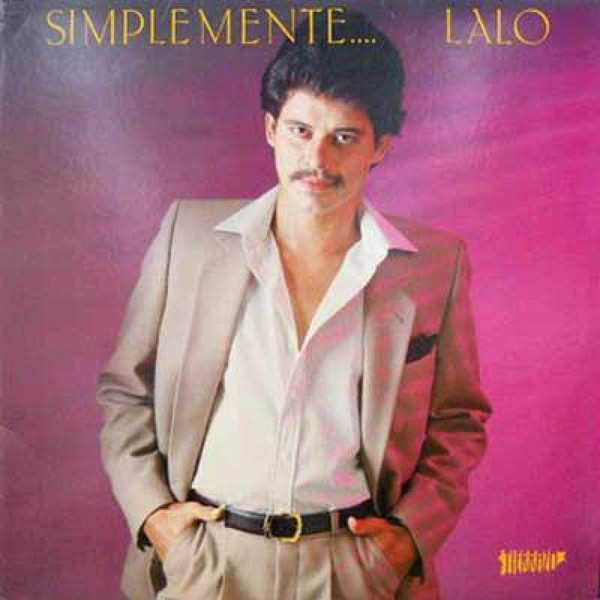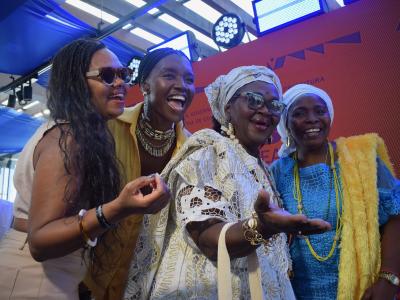Ubaldo Rodríguez Santos was born in 1958, began his career as a child, singing in local events and festivals, as well as on the radio and television. He joined Palmieri's band as a teenager in 1973 and sang on Palmieri's album 'Sun of Latin Music' — which won a Grammy in 1976, the first ever Grammy awarded to a Latin record.
On the album, Rodriguez sang “Nada de ti” (Nothing of you), “Nunca contigo” (Never with you), “Un día bonito” (A beautiful day) and “Deseo salvaje” (Wild desire), a bolero written by Rodríguez, which all became classics. The album left a mark in the history of Latin Music, and catapulted the Puertoriqueño onto the international stage. The following year Rodriguez sang on Unfinished Masterpiece, also with Palmieri, who gave him his new first name “Lalo.”
In 1988, Lalo dropped ‘the bomb’ of salsa - ‘Devorame otra vez’ became one of the first salsa romántica hits that begun an era of romantic salsa that saw the likes of Rey Ruiz, jerry Rivera and Luis Enrique. Lalo was a pioneer of the genre. Since then, millions of people throughout the world have sung at the top of their lungs the verses of Lalo’s “Come, devour me again.” And millions more have danced to it on the dance floors of clubs all over the world.
Rodríguez continued to record and produce new albums throughout the 90s. In 1994, he re-recorded the Nací Para Cantar, then in 1996 Estoy Aquí. The salsero released a total of 18 albums throughout his career. However, while making his mark in the music world, Lalo struggled with drugs and alcohol, and was consuming large amounts of cocaine.
According to Frankie Jay, Puerto Rican radio personality and a close friend of Rodriguez, "Lalo was a suffering guy, he carried a lot of pain that he never managed to heal and later in life he had to face,” he said. “When they took him to New York, he was 15 years old, there he comes into contact with a world totally outside of what he was. Many times people don’t look at the reason that a person turns to drugs, which is usually to mask or deal with some type of pain or problem,; in Lalo’s case, he had some situations in his life and that this was a way for him to escape."
When, on 14 December 2022, Rodríguez was found dead in a public housing project in Puerto Rico, at the untimely age of 64, there was an outpouring of tributes from peers and prominent figures of the Latin music:
Eddie Palmieri said his former bandmate was "a giant in so many ways. I don't need to tell you how much he has meant to me, our music and culture, and the world community."
Puerto Rican merengue singer Elvis Crespo, known for his international hit “Suavemente,” posted on social media: “One of the most beautiful voices my ears have heard and will hear. His unique, tuned and potent timbre made his music immortal.”
Journalist Benjamín Torres Gotay called the memory of the Grammy-winning artist "immortal." "He will always live on in 'Devórame otra vez', 'Máximo Chamorro' and 'Deseo salvaje', and through many other works," Gotay said. “A sad end for a true legend."















